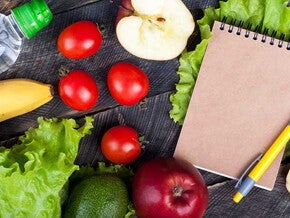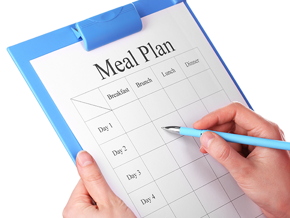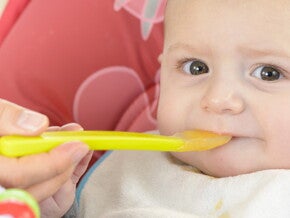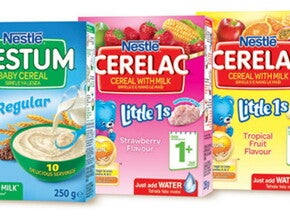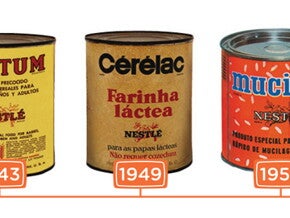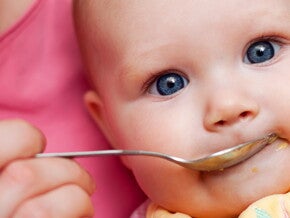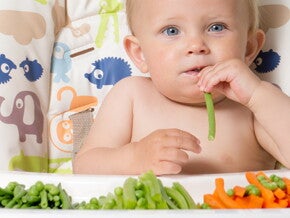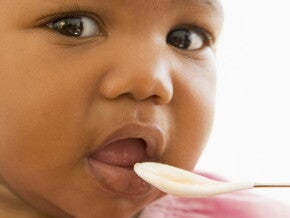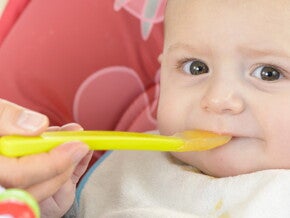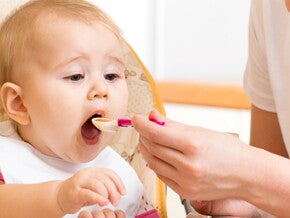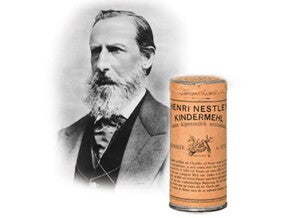
A day in your 6 to 7 month old’s diet
This sample day was created by registered dieticians to help meet the nutrition goals for your 6 to 7 month old baby. Your child may eat more or less, so always follow his hunger and fullness cues.
Morning feeding
Milk feed (cow’s milk should not be offered to babies younger than 1 year old)
Breakfast
2 tablespoons pureed fruit, such as peaches or pears
2 tablespoons dry infant cereal mixed with milk that baby is currently using (for NESTUM) or mixed with previously boiled, cooled water (for CERELAC)
Mid-morning snack
Milk feed
Lunch
1/4 cup or 4 tablespoons pureed vegetables, such as carrots
4 tablespoons pureed meat
Milk feed
Afternoon snack
Milk feed
Dinner
2 tablespoons dry cereal mixed with milk that baby is currently using (for NESTUM) or mixed with previously boiled, cooled water (for CERELAC)
2 tablespoons pureed fruit
Milk feed
Evening feeding
Milk feed
Foods to wait on
Giving your baby more adult foods, such as sweetened beverages, chips or cookies, may seem like a treat for your little one, but nutritionally these don’t offer much.
Hold up on the sugar and salt
Some babies are being introduced to salty snacks, chips and soda as young as 7 to 8 months old. These foods are inappropriate for such young children and run the risk of filling them up before they can eat more nutritious foods. This also establishes poor eating habits at a very young age that may become harder to change as time goes on.
Do not offer sweetened beverages
Sweetened drinks should not be part of the infant’s diet. And, because of their relatively high natural sugar content, some nutrition and health experts suggest that fruit juices should not be introduced during the first year. If you choose to offer juice, you may start after six months by offering juice from a cup to introduce new flavours. Never offer juice in a bottle. Start with 30 t0 60 ml per day, and limit juice to no more than 120 ml a day. Only give your child 100% juice, not juice drinks or other blended juice-like beverages, which contain added sweeteners.
Waiting on cow’s milk
Cow’s milk is not an appropriate beverage for your baby before 1 year of age.
CONSULT YOUR DOCTOR
Talk with your paediatrician to see which milk option is right for your child once he’s reached his 1 year old birthday.
Hold off on the honey
Honey can contain the bacteria that may cause infant botulism, an illness that occurs when a baby ingests toxins from Clostridium botulinum.
That is why, whenever honey is used in our products, it undergoes an externally validated heat treatment which inactivates any Clostridium botulinum spores that may be present thus ensuring that our products are safe to consume.
